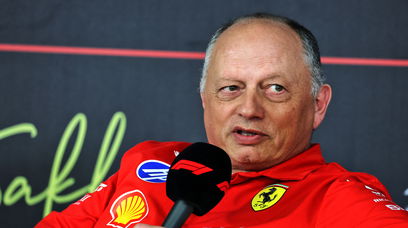The resignation of Mattia Binotto, effective from 31 December, implies that on this date his successor as Team Principal of the Scuderia is identified. In fact, this will most likely coincide not only with the appointment of the team leader from January 1st, but also with a substantial redistribution of the positions held solely by Binotto. It is in fact probable, according to rumours that are beginning to filter through, that a clear division will be implemented at least between the team's technical and managerial roles. In practice, a technical director would be appointed to supervise both design areas, chassis and engine, each maintaining their respective managers. In essence, there would be something of a substantial reversal of the current hierarchical structure in the technical area. It could inevitably have consequences on the development plan of next year's car, but the news coming from Maranello about the potential of the 2023 challenger would seem very reassuring, especially regarding the power unit.
Ferrari's advances in power unit reliability
During the entire 2022 season, especially in the second part, Ferrari have been intensively working on redesigning the components of the power unit, primarily the ones which had been the root causes of failures. The Maranello engine department not only analysed - and possibly revised - some quality control procedures, but analysed how to optimize, using stress analysis tools, primarily the upper area of the internal combustion engine, solving at the same time the root causes of the failures of the PU in 2022. In particular, it seems that a new version of the TJI (Turbulent Jet Injection, an advancement in the air-fuel combustion process) system has been developed. The existing TJI system had proved to be not totally effective in the filling phase of the combustion chambers, and had induced a high thermal and mechanical stress, which transferred directly to neighbouring components, such as the turbocharger and the MGU-H. Despite the freezing of power units until the end of 2025, these modifications are permitted as an exception to the regulations, which allow for reliability developments. Reliability allows for a more extreme exploitation of the engine power, which in itself is a performance gain. The performance of the Ferrari power unit is, according to reported comments from Haas Team Principal Guenther Steiner at the Bandini award ceremony in Brisighella, 'like a rocket', with the Ferrari-powered team anticipating being able to fully exploit the potential of the engine without fear of sudden failures.
Most read






